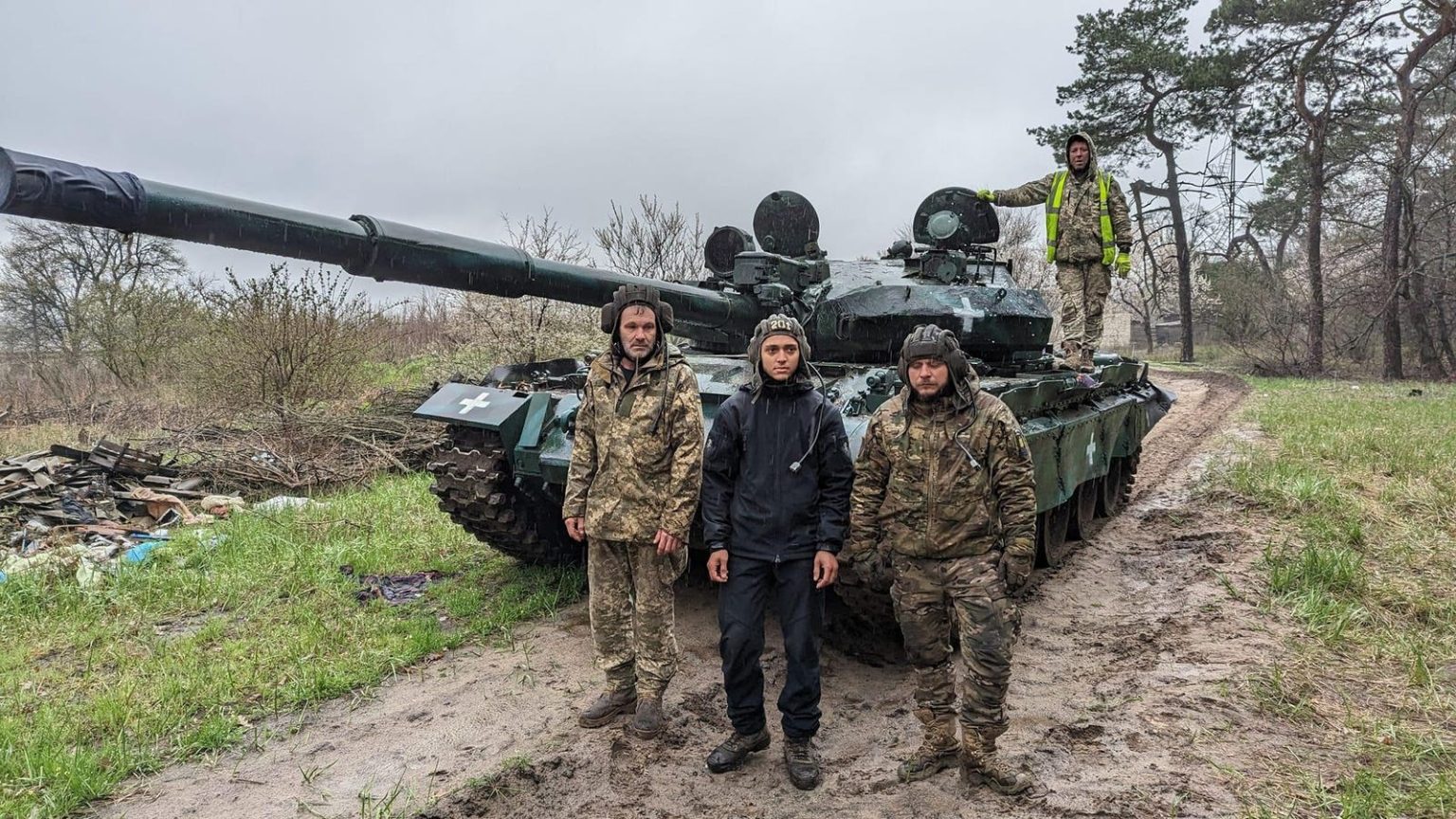In the 21 months of Russia’s wider war on Ukraine, Ukrainian forces have captured at least 44 Russian T-62 tanks.
Never ones to waste an armored vehicle, no matter how old, the Ukrainians have converted some of the 1960s-vintage T-62s into engineering vehicles and infantry fighting vehicles.
The ex-Russian T-62s that are left over seem to have cascaded to Ukraine’s territorial brigades. A photo that circulated online on Tuesday depicts a 41-ton, four-person T-62M in service with the 110th Territorial Defense Brigade.
The T-62 is old. Its armor is just 215 millimeters thick at its thickest. Ukraine’s standard T-64 tank has three times as much protection.
Also, the T-62’s 115-millimeter smoothbore gun is minimally-stabilized; its fire-controls are simple and, for most T-62 models, rely on active infrared sights for night-fighting. To illuminate a target, the crew must switch on an infrared spotlight that’s visible to enemy forces.
It’s not for no reason that, after reactivating hundreds of old T-62s starting in the summer of 2022, the Russian army mostly assigned them to second-line reserve battalions—and those battalions mostly assigned the tanks to fire-support missions miles behind the front line.
That is, the tanks function as do-it-yourself howitzers by super-elevating their guns and blasting away, inaccurately, at Ukrainian positions.
But for all its flaws as a tank, the T-62 is better than no tank at all. Which is why the 110th Territorial Brigade would happily add captured Russian T-62s to its order of battle.
Ukraine’s roughly 30 Territorial Defense Forces brigades are equivalent to U.S. Army National Guard brigades in that their 2,000 or so troops are a mix of aging veterans and mobilized civilians with less training than a full-time soldier might get.
Unlike USARNG brigades, which tend to be heavily armed with tanks, fighting vehicles and artillery, TDF brigades generally are lightly equipped.
Their lack of heavy armor has gotten the territorials in trouble in the current wider war. “From mid-April 2022, the deployment of the TDF was affected by a number of changes in Russian and Ukrainian tactics as the epicenter of the fighting shifted to eastern Ukraine,” Mykola Bielieskov wrote in a May analysis for the Royal United Services Institute in London.
“Russia switched to a strategy of artillery-supported advances instead of trying to overwhelm Ukrainian positions with armor moving on major roads. The fighting became more non-contact in character, with artillery duels being the decisive factor instead of the emphasis on contact warfare seen in the first month of the invasion.”
“Under these conditions, it was more difficult for TDF formations—armed at best with anti-tank guided missiles and grenade launchers—to effectively confront Russian forces,” Bielieskov concluded.
The territorials need heavier weaponry. But the Ukrainian defense ministry has struggled to generate enough modern tanks, fighting vehicles and artillery to equip its rapidly growing active army, air-assault forces and marine corps—to say nothing of equipping dozens of TDF brigades.
So it should come as no surprise that Kyiv is giving the TDF captured ex-Russian T-62s. They’re lightly protected and their fire-controls are crude, but they’re better than nothing.
It also should come as no surprise that the 110th Territorial Brigade was at the front of the line for T-62s. The 110th is one of the most experienced and effective TDF brigades. It has fought in some of the most bitter battles in southern and eastern Ukraine. Bielieskov described the 100th territorials’ performance as “quite impressive given the conditions they faced.”
With tanks, the brigade should be able to stand and fight in conditions where, before, it might have to retreat. Even if those tanks are 60-year-old Russian leftovers.
Read the full article here





